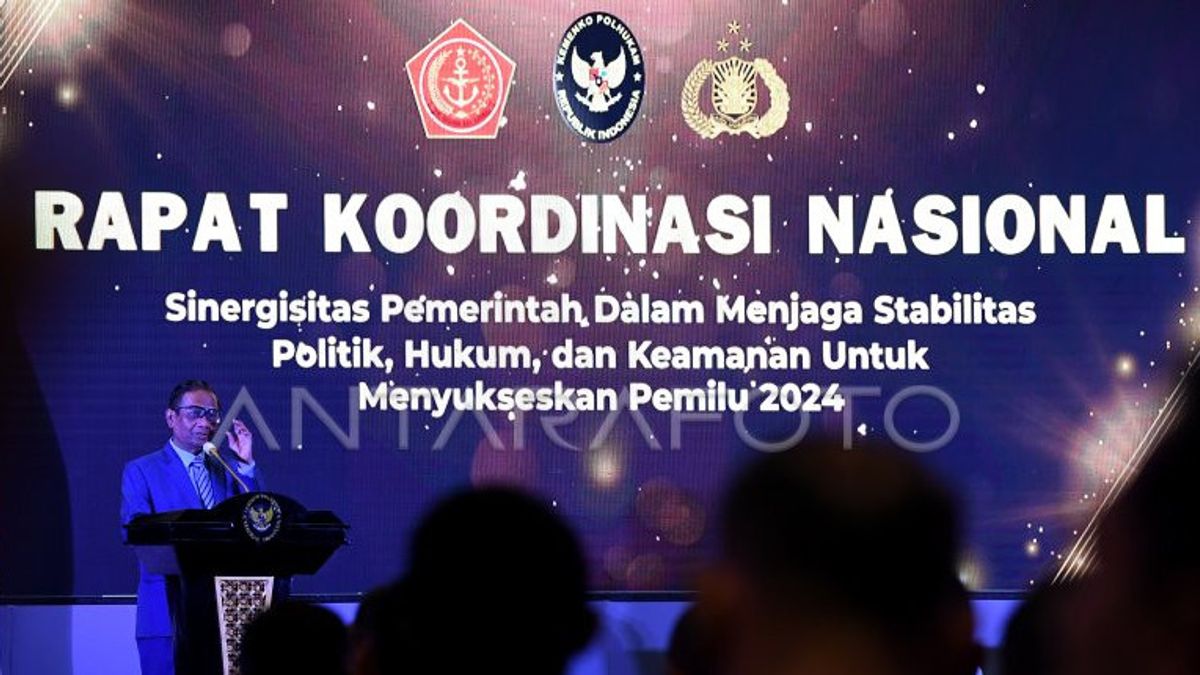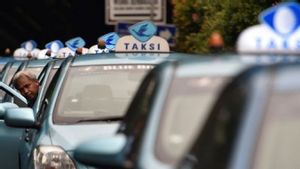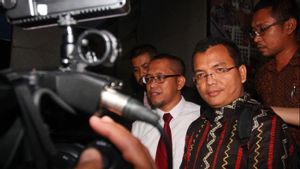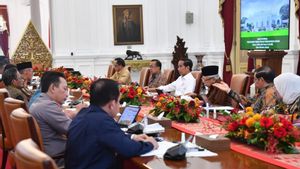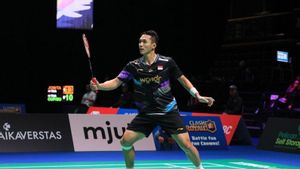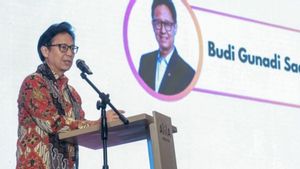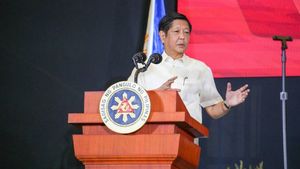JAKARTA The topic of strengthening political parties has surfaced again along with the increasing debate over the implementation of an open or closed proportional proportional system in the 2024 General Election for legislative elections.
Some people think that whatever system will be used in elections as long as political parties have not been able to fix themselves, the quality of the resulting elections will remain the same.
The KPU has determined that there are 18 national political parties participating in the 2024 election. This number on the one hand does reflect the spirit of democracy, but on the other hand it also causes worrying symptoms.
Because, few political parties can carry out their functions well. The majority can be said to only make the election a place to acquire and share power.
Instead of arguing about finding a solution to how to build the nation, they are even busy with pragmatic matters. A real example of how political parties today are very easy to pawn ideology. Coalition with other different parties to sit as rulers as stated by Muhadam Labolo and Teguh Ilham in the book 'Political Party and General Election System in Indonesia: Theory, Concept and Strategic Issues'.
In the presidential election they became rivals, in the regional head election they even form a coalition.
The weak ideology of political parties in Indonesia today is one of the serious problems. If it continues, it is feared that the role of political parties as distributors of people's aspirations will be disrupted. Without ideology, politics will only cause stuttering for its cadres when they hold power.
That is why strengthening the role of the Research and Development division (Litbang) in political parties is very important. Litbang has a role in managing political issues, political agendas, political development, and ideological consistency.
"If Litbang has been able to carry out its functions, political parties will also slowly be able to restore its function," he said.
Another problem that often haunts political parties is financial. Almost no party can survive only by relying on member contributions. As a result, political parties tend to seek other income by recruiting wealthy groups who want to become public officials. As long as they have money, those who do not have the competence can also become officials. Or leaning on entrepreneurs.
Of course, this has the potential to castrate party independence in politics because behind the big donation given by the capital owner is motivated by the intention to be able to control the party by influencing political party policies. If this continues, the function of political parties in connecting the people's tongue can be lost by itself.
The rise of corruption cases has shown us how unhealthy the financial condition of political parties is in this country. They are corruption is not solely due to personal motives. The need for political parties for large funds to win the election has prompted politicians to be corrupt, "said Muhadam and Teguh.
The recruitment system and the regeneration pattern of members of political parties are also a concern in efforts to strengthen political parties. However, political parties are part of the most responsible political system in producing quality leaders, both at the central and regional levels.
In addition to strengthening political parties, strengthening the electoral system also needs to be carried out so that competition between participants can take place honestly and fairly. Muhadam and Teguh noted that there are a number of main problems currently faced by the electoral system in Indonesia, including the low critical power of the community in choosing due to the lack of optimal political education they have received so far.
Not only political parties, a number of other components such as educational institutions, the press, and the community have an important role to play in overcoming this.
Then, elections are high in costs. The high cost of elections is certainly not only felt by the government but also by election participants. Changes in the electoral system to open proportions result in the current legislative election participants not only competing with participants from other parties but also with participants from the same party.
Professor of political psychology at the University of Indonesia, Hamdi Muluk also highlighted the number of parties participating in the elections. Too many parties and candidates will confuse voters. Imagine, if one party sends 10 candidates for one electoral district, it means that 180 candidates must be sorted.
It is very unlikely that voters will sort out one by one the candidates. In the end, voters do not see the quality of the candidates, but rather look to the most popular figures. In the electoral context, the most prominent is generally celebrities.
That's why, Hamdi assessed that the electoral system with too many parties felt irrelevant. Three to four political parties alone are enough. That way, the party will choose the right and qualified people to run in certain electoral areas to compete in terms of ideas with candidates from other parties.
"The party will be selecting from the start, so there was a selection process, nominations, strong regeneration in the party which was only offered to the public. Now with proportional openness, my criticism, the party is lazy. The party seems to say this, we offer 10, you think for yourself who is good. I said, when I knew who was good," Hamdi said as quoted by YouTubeAkbar Faizal Uncensored.
Hamdi did not deny that the closed proportional system on the other hand raised concerns about the emergence of nepotism practices in the election of cadres who would run as members of the legislature. However, according to him, that is another problem.
Of course, if political parties already have a strong system of fundraising and ideology, as well as a good recruitment and regeneration system, these concerns can be minimized.
If this happens, the public will definitely punish the party in the next election.
"We all certainly really miss the times in which the world of politics in this country is full of activities that really lead to the goals of politics itself as STATED byTEN to build and realize an ideal or better society," added Muhadam and Teguh.
また読む:
The English, Chinese, Japanese, Arabic, and French versions are automatically generated by the AI. So there may still be inaccuracies in translating, please always see Indonesian as our main language. (system supported by DigitalSiber.id)
